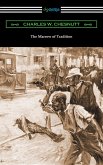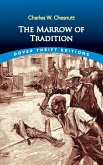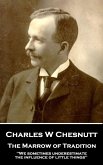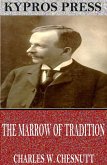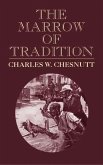In "The Marrow of Tradition," Charles W. Chesnutt weaves a compelling narrative that delves into the complexities of race relations in post-Civil War America. Set against the tumultuous backdrop of a Southern town facing the repercussions of the Reconstruction era, the novel employs a rich, realist literary style characterized by intricate character development and nuanced social commentary. Chesnutt'Äôs exploration of themes such as identity, prejudice, and the struggle for justice reflects the broader literary movement of the late 19th century, where authors began to confront and critique societal issues head-on. Charles W. Chesnutt, an influential African American author, drew upon his own experiences as the son of free Black parents in the antebellum South to inform his writing. His profound understanding of the African American experience and keen observations of systemic racism are evident throughout this work, which served as a poignant critique of both Northern and Southern attitudes during his time. Through his literary endeavors, Chesnutt sought to illuminate the struggles and triumphs of Black Americans, "The Marrow of Tradition" stands as a vital read for those interested in the intersections of race, history, and literature. Its eloquent prose and compelling narrative not only serve as a mirror to history but also resonate profoundly with contemporary discussions on race and identity. Readers will find in Chesnutt's work both a historical document and an enduring testament to the human spirit's resilience.
Dieser Download kann aus rechtlichen Gründen nur mit Rechnungsadresse in A, B, BG, CY, CZ, D, DK, EW, E, FIN, F, GR, H, IRL, I, LT, L, LR, M, NL, PL, P, R, S, SLO, SK ausgeliefert werden.



